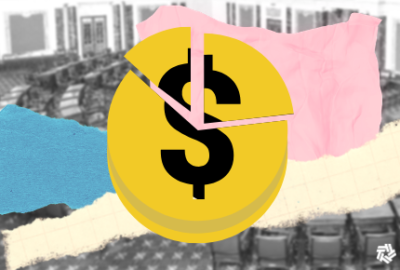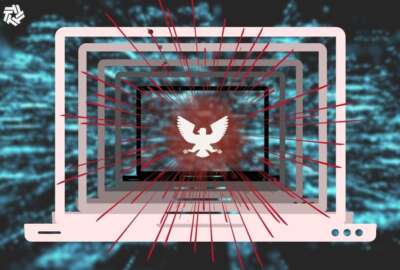

The 2023 Financial Service and General Government section of the Omnibus bill allocates $50 million for the Technology Modernization Fund, well below the $300...
Best listening experience is on Chrome, Firefox or Safari. Subscribe to Federal Drive’s daily audio interviews on Apple Podcasts or PodcastOne.
Congress may have shown little new love for the Technology Modernization Fund in its fiscal 2023 omnibus bill, but that doesn’t mean IT modernization will not reap what the Office of Management and Budget has been sowing for the past decade.
Lawmakers seem to finally grasp there are specific policy changes and resources that agencies need to chip further away at the mounting billions of dollars in technical debt.
House and Senate lawmakers released the details of the Omnibus on Dec. 20. Both houses of Congress must pass the bill by Dec. 23 or risk a partial government shutdown or the need to pass another continuing resolution.
Starting with the Federal Citizen Services Fund, the 2023 Omnibus in the Financial Service and General Government section of the bill nearly doubles its allocation to $90 million.
But, maybe more importantly, lawmakers also doubled the amount of money to $200 million that the General Services Administration, which runs the fund, can accept through agency reimbursements.
The House had approved $115 million for the fund, but during negotiations with the Senate on the Omnibus bill, lawmakers agreed to $90 million, which still is $45 million more than it received in fiscal 2022.
Associated with the additional funding is new authority for GSA to support governmentwide programs like the Federal Risk Authorization Management Program (FedRAMP), Data.gov and USA.gov by asking agencies to contribute up to $15 million a year.
A Hill staff member, who helped develop several provisions in the omnibus, said this new authority will be transformation for GSA’s Technology Transformation Service (TTS), which oversees many of these governmentwide efforts.
“With a new floor for its direct appropriations and this new authority that will actually require agencies to pay into common shared services, the future is very bright for GSA,” said the staff member, who requested anonymity in order to talk about the bill’s provisions. “Congress clearly sees TTS as the primary agent for governmentwide change in areas such as IT modernization, customer experience and shared services. The new pass the hat authority should be leveraged to improve and expand programs like FedRAMP and USA.gov.”
Lawmakers want more details from GSA and the Office of Management and Budget about the areas where agencies would further benefit from shared services.
“The GSA administrator, in consultation with the Office of Management and Budget and, as appropriate, other federal agencies, is directed to identify, define and produce a prioritized list of the common challenges or needs across agencies that would benefit from shared technical solutions or ways to make data more accessible and interoperable across one or more agency IT systems, including specific examples and recommendations and report to the committees no later than 180 days after enactment of this act,” the joint explanatory statement stated.
Additionally, the bill would require the Government Accountability Office to identify statutes or agency policies that currently inhibit the adoption of shared technology platforms and services, and make recommendations on changes-either within agency procedures or statute-that would remove these obstacles.
As for the TMF, Congress would allocate $50 million, which is well below the $300 million the White House requested and the $100 million the House approved in its version of the bill. The Senate continues to show tepid support for giving more money to the TMF beyond the $1 billion in the American Rescue Plan Act in 2021. To date, including the two new awards made on Dec. 19 to the U.S. Agency for International Development and the Railroad Retirement Board, the TMF Board has made 23 awards worth more than $450 million. This includes 17 awards in calendar year 2022.
USAID is slated to receive almost $6 million to accelerate the development of its agencywide customer relationship management system. The RRB would get almost $9 million to move major services for railroad retirees from phone and paper to new online systems. This is the first tranche of awards after the Biden administration’s promise last June to spend $100 million from the TMF to improve customer experience systems across government.
The third leg of the IT modernization stool, the IT Oversight and Reform Fund (ITOR), which OMB manages, is slated to receive $13.7 million, which is $5.7 million more than in 2022 and at the level the Biden administration requested.
As part of that investment and others, legislators kept in the provision requiring OMB to develop an IT strategic plan.
“The federal government must maximize the impact of these funds by developing a strategic spend plan that prevents duplication efforts, prioritizes spending, and guarantees coordination among agencies. OMB is directed to provide the committees with a detailed strategic plan for use of the funds no later than 60 days after enactment of this act,” the statement stated.
OMB released its first IT strategic plan on June detailing projects made possible through three governmentwide IT modernization funds, as well as upcoming plans on where it will spend more money.
Another part of OMB also is now in the sights of lawmakers for how they are spending money. The Omnibus bill calls on the Office of Information and Regulatory Affairs (OIRA) to provide a report to Congress in 60 days detailing how many full time employees it has, outlining its organizational chart and provide any recommendations to improve its oversight of the Paperwork Reduction Act (PRA).
The Hill staff member said OIRA typically flies under lawmakers’ radar for its potential and real impact on federal technology and data policies.
“It is widely known, but rarely said, that OIRA is the single biggest obstacle to driving true customer experience, data sharing and modernization efforts through its onerous and asinine oversight of the Paperwork Reduction Act (PRA),” the staff member said. “Even OIRA Administrator nominee Richard Revesz said in his confirmation hearing that the law was outdated and needed to be updated. By putting a spotlight on OIRA’s structure and resources, Congress is taking a first step to find out more about how the entity functions, what it currently does and — most importantly — what it should do in the future. One area ripe for Republican and Democratic compromise in the 118th Congress will be regulatory reform — which must start with a total overhaul of OIRA.”
Senate and House lawmakers also are putting heat on how agencies are meeting the requirements under Section 508 of the Americans with Disabilities Act. Over the last six months, Sen. Bob Casey (D-Pa.), chairman of the Special Committee on Aging, has been leading the charge to get agencies to pay more attention to how websites and other digital offerings are used by people with disabilities.
The Omnibus bill includes a provision to address Section 508 requirements.
The Hill staff member said this provision clearly puts GSA and OMB in the spotlight on improving Section 508 compliance.
“Improving IT accessibility has been a key priority for many Senators and committees this Congress — and this is the kind of strong direction that is needed to ensure the administration prioritizes and reforms Section 508 implementation. There will very likely be more authorizing legislation in the 118th to reform many of the other elements of the 508 program,” the staff member said.
A few other technology related provisions that stood out include:
Copyright © 2025 Federal News Network. All rights reserved. This website is not intended for users located within the European Economic Area.
Jason Miller is executive editor of Federal News Network and directs news coverage on the people, policy and programs of the federal government.
Follow @jmillerWFED



